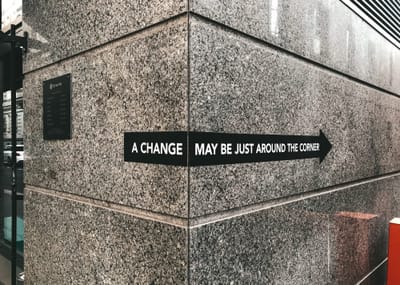Services

Individual Psychotherapy
'Good' psychotherapy can be difficult to define. Every individual will experience the therapeutic process differently and as such therapists need to maintain an individualised person-centred approach. Despite the necessary nuances in psychotherapy I believe key principles need to be upheld. These include: providing therapy that incorporates the importance of the individual's history, values and needs; seeing an individual accessing therapy as a partner in clinical practice; maintaining fidelity to the research evidence-base whilst flexing where its possible to incorporate individual differences, and recognising "one size does not fit all". I adopt an integrative person-centred approach, incorporating elements of CBT, EMDR, CFT, ACT and other psychological modalities. In the spirit of collaboration, I aim to help clients recognise that they have the inner resources to change. In the words of Albert Schweitzer, "Each patient carries his own doctor inside him... We are at our best when we give the doctor who resides within each patient a chance to go to work." I believe the two most influential factors in a client's experience of therapy are: the therapeutic relationship and the client's perception of the psychological approach being used. Consequently, I emphasise the importance of meeting with me for a conversation before we embark on therapy. We need to establish if I am a "good fit" in terms of therapist and get a sense of whether the treatment approaches I adopt will help you work towards your goals. Sessions can be delivered face to face, via an online video platform, or by phone (though some of the psychological techniques can not be facilitated via the phone). I will talk to you about the advantages and disadvantages of each. As I am not always based at The Therapy Room, visiting is strictly by appointment only. Please telephone or email for an appointment. Please also note that I am unable to offer a crisis service. If you feel that you are in crisis and need urgent support please refer to the URGENT HELP section.

Clinical Supervision
I offer Clinical Supervision for therapists seeking professional development and support in their clinical work in either one-to-one or group sessions, whether they are practising privately or within NHS trusts. As an Accredited EMDR Consultant and Supervisor I offer EMDR supervision for both accreditation and non-accreditation purposes. For several years now I have been privileged to receive supervision from Dr Robin Logie. Robin is a Clinical Psychologist and EMDR Consultant and Trainer. His experience of supervision is extensive, much of this being captured in his recent publication EMDR Supervision: A Handbook (2023). His wisdom has guided me to understand the important nuances of supervision, recognising the multifaceted role of the supervisor. My supervision encompasses all the important aspects of educating, enabling, evaluating, and most importantly developing a facilitative relationship. Supervision sessions can be delivered face to face, via online video platform, or by phone.

Teaching
I offer personalized teaching tailored to the needs of both individuals and organisations. I collaborate with other professionals, colleagues and researchers to design and deliver bespoke training packages; whether as ad hoc standalone sessions, as a course, or as a recurring or supplementary component to your training curriculum. I have regularly taught as a guest lecturer on the treatment of trauma for the Doctorate of Clinical Psychology courses at Lancaster University and have previously been commissioned to deliver bespoke training sessions for registered charities and NHS Talking Therapies services, and as part of professional conferences. Your business may benefit from workshops to promote awareness of the recognition of mental health difficulties in the workplace and strategies to support in the management of those issues and promote staff wellbeing. I am able to deliver training which will support participants to develop both the skills, and confidence required to have enabling conversations with others (in both work and their lives more generally) together with the insights necessary to support themselves and others to take evidence based action designed to improve mental health and emotional wellbeing. Or you may have more specific needs to meet the requirements of your particular workforce such as around addressing the impact of occupational stress, vicarious trauma, compassion fatigue and burnout. Whatever your needs please contact me to discuss ways in which I can assist you in supporting you, or your colleagues, and unlock the potential of your workforce.

Research
I have co-authored a number of peer reviewed published studies on the use of trauma focussed CBT and EMDR in the treatment of trauma related psychosis, and also contributed a chapter on trauma focussed therapy using cognitive behavioural and EMDR approaches in "Personal Experiences of Psychological Therapy for Psychosis and Related Experiences" (2019, Routledge). Further details can be found under "Publications" in the READ MORE section below. I frequently appear at conferences where I have delivered both presentations and facilitated clinical workshops. These are just a few of the speaking engagements I've completed recently - Lancashire Care NHS Foundation Trust "Psychosis and EMDR" (https://ppn.nhs.uk/attachments/article/829/PsychosisandEMDRConferenceFlyer2.pdf), Towards Trauma Responsive Mental Health Care: A Conference to Launch The Complex Trauma and Resilience Research Unit and The GMMH Psychological Forum (https://documents.manchester.ac.uk/display.aspx?DocID=54373), LSCFT "Trauma and Psychosis" (https://ppn.nhs.uk/attachments/article/2652/NHS%20Conference%20Flyer%2007.02.20.pdf), EMDR UK Annual Conference (2023) (https://etq.emdrassociation.org.uk/2023/02/16/2023-emdr-uk-association-conference-agm/)
Read More
Cognitive Behavioural Therapy (CBT) is a model of therapy where you learn to understand your feelings and emotions about events in your life, to identify and examine the thinking patterns that are taking place and how they may impact on your behaviour.
Read MoreEMDR therapy is an extensively researched method proven to help people recover from trauma and other distressing life experiences. Please click below to find out more.
Read MoreI have extensive experience in the delivery of EMDR and CBT supervision both on an individual and group basis. Read more here about my approach to, and ethos in this, the cornerstone of our clinical practice.
Read MoreI am part of a research team who have collectively developed an intervention protocol which has been the subject of a number of published articles which I co-authored, details of which are set out here.
Read More





